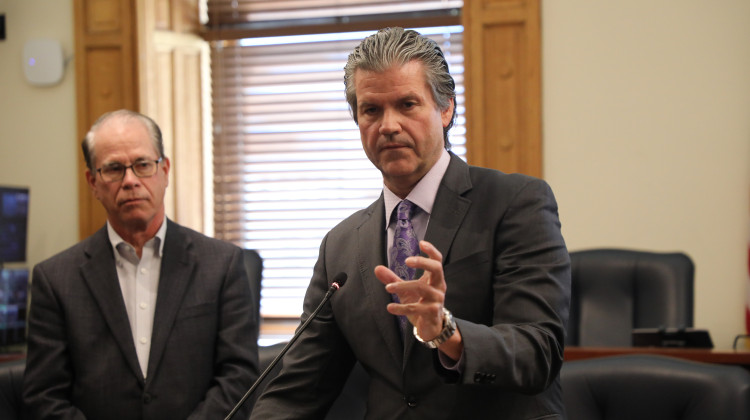
The Indianapolis-based Regenstrief Institute is a health research facility partnered with IU School of Medicine.
Lauren Chapman/IPB NewsAn Indiana scientist has been awarded $21 million from the U.S Department of Veteran Affairs to study chronic low back pain in veterans. Researchers say they hope to find innovative solutions to a widespread issue.
Nearly 80% of people will experience low back pain, according to the National Institute of Neurological Disorders and Stroke. Veterans are at an even higher risk for the pain, which is the most common cause of job-related disability.
Lead researcher Dr. Matthew Bair says the study will focus on solutions that treat pain without drugs or surgery. Methods will include evidence-based approaches such as physical therapy, yoga, and psychological counseling. Bair says some of these approaches, like yoga, are promising but offer limited data.
“We know that veterans and other patients are demanding alternative treatments,” Bair says. “What this trial does is look at these treatments head to head, comparing against each other.”
Bair works at the Regenstrief Institute in Indianapolis and the U.S. Department of Veteran Affairs. He says researchers decided not to include painkillers as part of the trials because the surge in opioid misuse.
“We want to try and address – in a small way – the opioid epidemic through improving access and treatment through non-pharmacologic approaches, non-drug approaches,” Bair says.
An estimated 2,500 veterans will be included in the national study, which will take six years to complete.
 DONATE
DONATE








 Support WFYI. We can't do it without you.
Support WFYI. We can't do it without you.